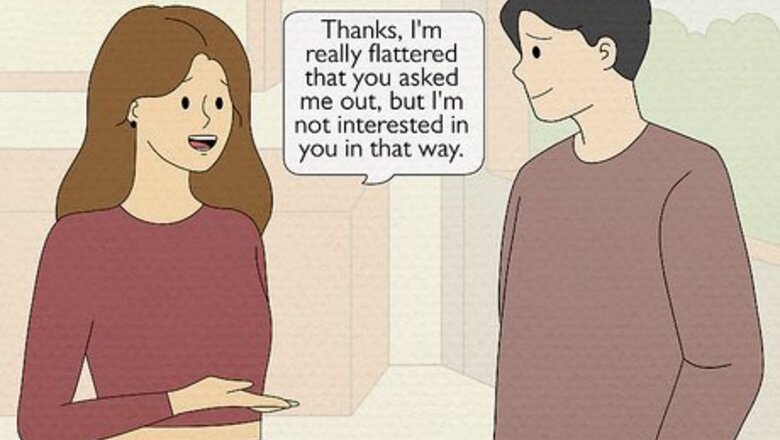
views
Responding With Tact and Consideration
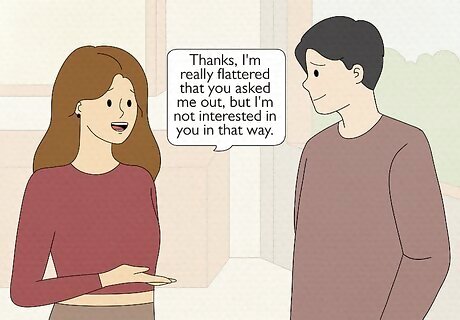
Be honest and express that you are flattered but not interested. Whether you are interested in the person or not, being asked out is always a compliment. That person thinks you are worth risking possible rejection and embarrassment for, and although they could have chosen literally anyone in the world to be interested in, they picked you. It takes a lot of courage to put yourself out there like that. Smile and say thank you. Express gratitude that the other person thought of you in that way, but clearly state that although you appreciate it, you aren’t interested. For example, try saying something simple like, "Thanks, I'm really flattered that you asked me out, but I'm not interested in you in that way." Remember—it's not the end of the world if the other person ends up with their feelings hurt. What matters is that you're speaking honestly without being malicious.
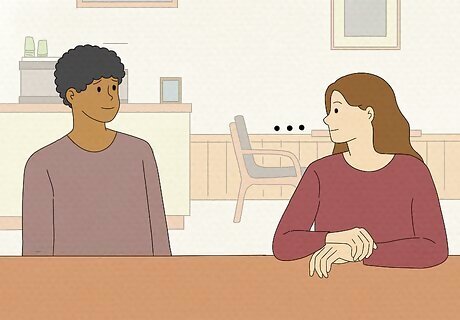
Pause for a beat before you say no. If you are put on the spot, at least pause for a moment before verbally shutting the person down. This shows them that you actually considered their question – even if you didn’t. Saying “no” without a trace of hesitation can definitely hurt someone’s feelings.
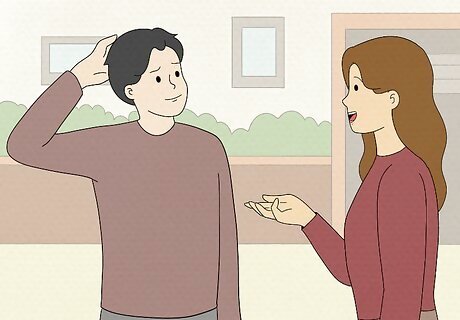
Say as little as possible. When it comes to turning someone down, less is usually more. Lengthy rejections and rambling explanations can open the conversation up to debate and misinterpretation. You don’t need to elaborate at length, so keep your rejection short and sweet. The more you say, the more false it will feel to the other person, and the more it prolongs an already awkward conversation.
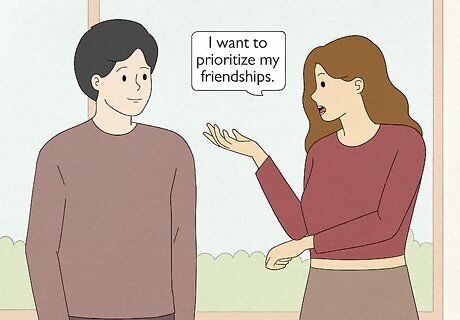
Fib skillfully. If you’re going to make up an excuse, at least make sure to use something that is believable and doesn’t have a loophole. For instance, “I just got a promotion and I want to focus on my work” or "I want to prioritize my friendships" is much stronger than “I’m really busy this week” or “I’m just not ready to date right now.”
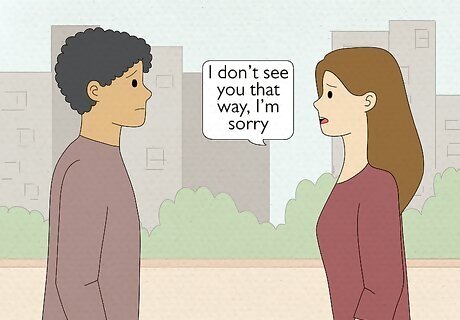
Use “I” statements. Instead of using language describing why you don’t want them, try putting the focus on yourself instead. Simple statements such as, “I don’t see you that way, I’m sorry” and “I really like you as a person, but I don’t feel a connection between us” are easier to digest than “You aren’t my type."
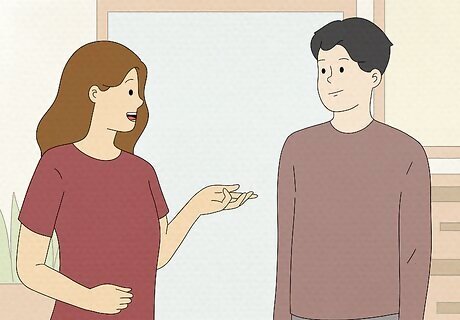
End the conversation gracefully. Both of you are probably feeling awkward and uncomfortable at this point, but try to end the conversation on a positive or lighthearted note. If it seems appropriate, try using a little humor. At the very least, offer a sincere smile and excuse yourself. Make a quick exit. Continuing the conversation or hanging around after the deed is done can be confusing and unpleasant for the other person. You might want to keep the conversation going in an effort to try to act normal and make the other person feel better about the rejection, but the kindest thing to do is end the encounter as soon as possible.
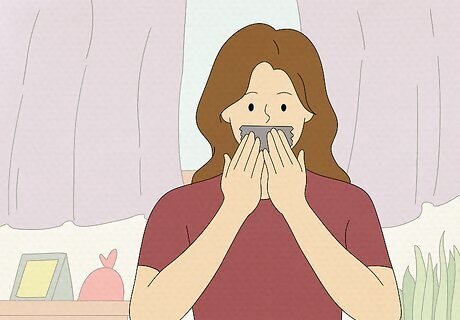
Keep the matter private. There is no reason to discuss the matter at all with co-workers or at length with your friends. Be respectful of the other person’s feelings. Being rejected is difficult enough without having to navigate the additional problem of feeling ashamed about it in front of other people.
Acting Promptly
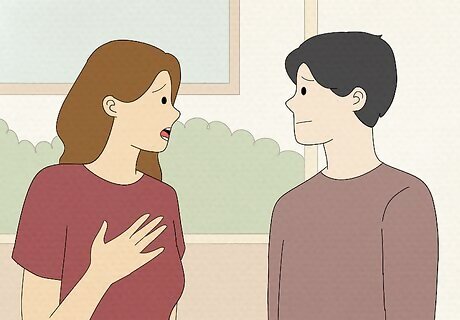
Confront the issue. Rejecting someone is usually extremely awkward for both parties involved and it can be tempting to ignore the situation entirely. If you pretend it’s not happening it will magically go away, right? Unfortunately, allowing silence to be your answer and hoping the other person will eventually “get the hint” is both cruel and a poor strategy that often backfires.
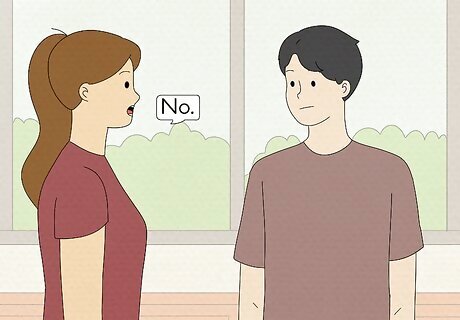
Give them a firm answer as soon as possible. Avoid waiting for “the right time” because there usually is no “right time." The longer you wait, the harder and more awkward the rejection will be for both of you. It can make it difficult for the other person to move on if they don’t receive a firm and clear “no” from you, so the kindest thing you can do is provide that to them. It may sting a little at first, but in the long run you’ll both be happier for it.
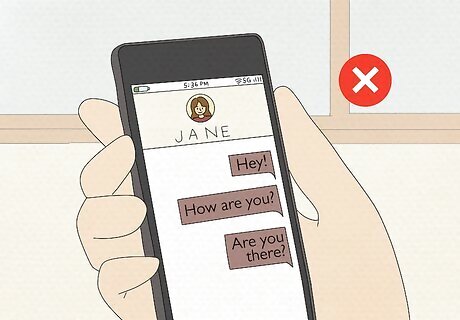
Avoid “ghosting." Ghosting is a relatively new term to describe an age-old way of rejecting someone – by disappearing completely after an initial encounter, whether that’s one date or several. Rather than confronting the issue, the initiator permanently withdraws completely with no explanation – ever. Vanishing completely without ever addressing the issue is doing exactly what you are trying to avoid – hurting that person’s feelings. In a 2012 study, researchers identified seven breakup strategies and then asked people to rate them from most to least ideal. “Ghosting” was overwhelmingly identified as the least ideal way to break it off with someone.

Respond to strangers and acquaintances via text. Unless you’ve known this person for a long time or have already been dating them for several months, letting them down gently via text is not only acceptable but also preferable. The blow of rejection is softened by the neutrality of a text and allows the person to nurse their momentarily bruised ego in private. There is no reason to make physical contact with someone you don’t know well just to turn them down. In some cases, such as when it comes to being approached online or by someone you work with that you rarely see and hardly know, even an email will suffice as a rejection. Reader Poll: We asked 409 wikiHow readers who've ended a short relationship, and 62% of them agreed that the best way to break up is by texting them. [Take Poll]
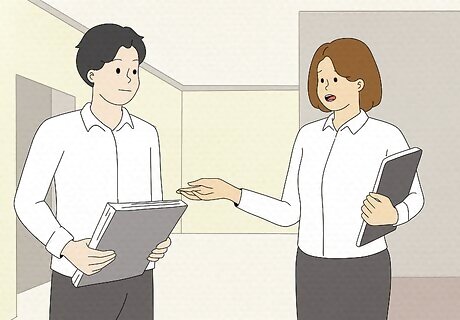
Respond to friends and co-workers in person. Anyone that you know personally or see every day, such as a friend or co-worker, deserves a face to face response. This will also make inevitable future encounters far less awkward. Delivering the news in person allows the other person to see your facial expressions/body language and hear the tone of your voice.
Being Straightforward
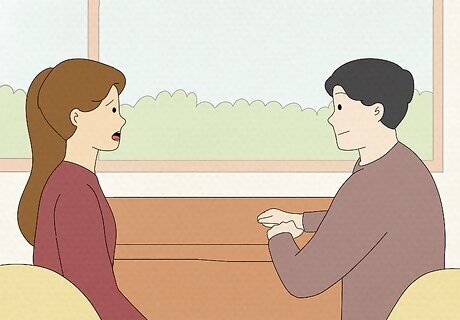
Be firm and absolute. Avoid wavering and appearing indecisive, which can confuse the other person. If you're firm when you turn them down the first time, you probably won’t have to have the conversation twice. An ambiguous reaction from you could make the person feel like they still have a chance, which wastes their time and isn’t fair to them. It also increases the likelihood that you’ll need to repeat this awkward conversation with them in the future. In any case, you should avoid being excessively blunt and be tactful, because rejection is painful.
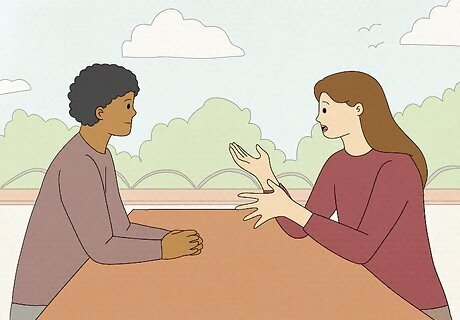
Speak kindly and directly. Approach them with a smile and keep your demeanor as calm and relaxed as possible. Use positive body language, such as sitting or standing up straight and looking the other person directly in the eye, to convey that you are serious. Negative body language, like slumping or not looking them in the eye, indicates a lack of confidence in your own words.
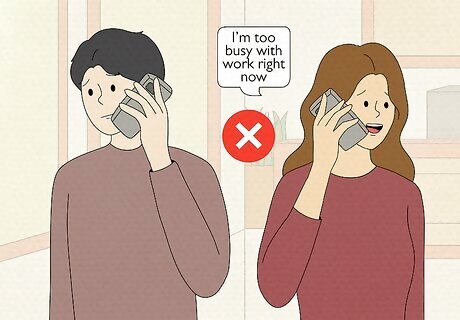
Don’t offer false hope. If you truly aren’t interested in dating this person, make that fact clear. Statements like “I’m too busy with work right now” or “I just got out of a long term relationship” may seem like kind responses, but to the other person this could sound more like, “Ask me again in a few weeks.” Avoid making it sound like there is a possibility for a future date, especially if you know there isn’t.
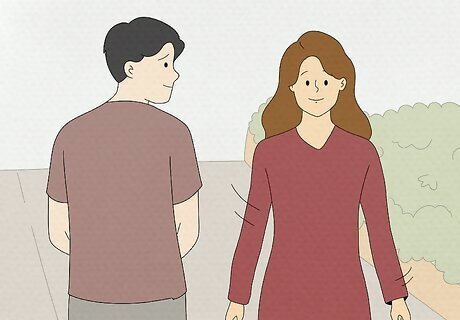
Move on. Don’t continue to stay in contact with a person that you have zero plans to ever actually date. Sometimes it can feel good being around someone who you know really likes you, but unless you are serious about returning the sentiment, you are simply feeding your own ego by doing it. Don’t re-initiate communication unless you’re really interested. It can be tempting to reach out to someone who you’ve turned down in the past, especially if you are going through a rough patch yourself. Unless you are truly interested in the person, there is no need to call, text, or even be Facebook friends with them. The infamous drunk dial (or text) is a common way people end up re-initiating contact. A momentary lapse of judgement on your end can cause a lot of confusion and despair for someone else. You’ll also be putting yourself in the position to have to reject them again.
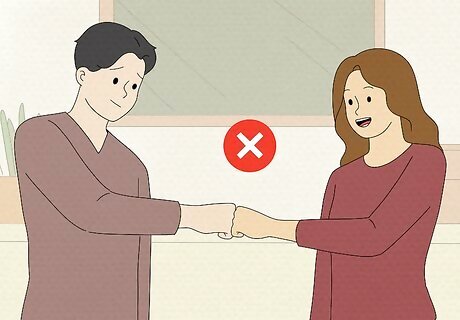
Avoid the friend-zone – unless you actually mean it. Do you really want to be friends, or are you just trying to spare the other person’s feelings by saying so? If it’s the latter, just don’t say it. If you truly do want to remain friends, give the person some space after you reject them. Give them a chance to get past their bruised ego and embarrassment. It’s possible that the other person may not feel capable of being friends because of their romantic feelings for you. If that’s the case, you will have to respect that.
Reacting Authentically
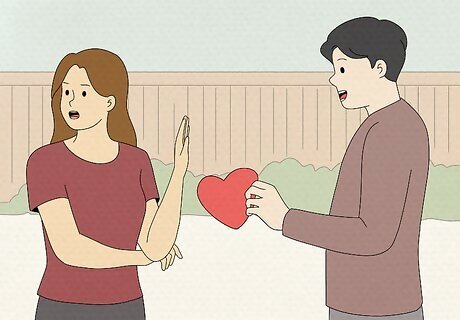
Recognize that it’s okay to say no. No one enjoys hurting another person, but turning someone down doesn’t make you a jerk or a bad person. It’s completely normal and okay for you to say no. If you aren’t attracted to someone in that way, you can’t help that. Saying anything other than “no” is disrespectful to both of you.
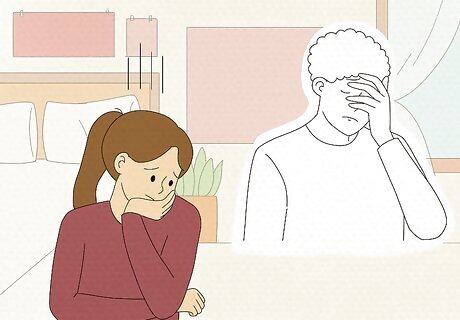
Stop feeling guilty. You aren’t obligated to please everyone, and you should never agree to date someone because you feel guilty. Respect your own feelings about the situation and don’t question yourself. Expressing guilt openly can really confuse the other person. If you are giving them an honest answer, apologies aren't necessary. If anything, you're doing that person a favor by toughening them up for a future rejection.

Trust your gut. Maybe you aren’t even sure why you are turning the person down, you just have a bad feeling about it or them. Trust that feeling. If something feels weird or off, it probably is.
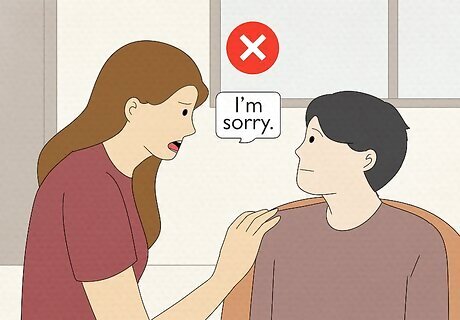
Don’t apologize. It’s okay to say no and you have absolutely nothing to apologize for. You may even genuinely feel sorry, but expressing that out loud translates as pity and that you’ve somehow done something wrong by turning them down.













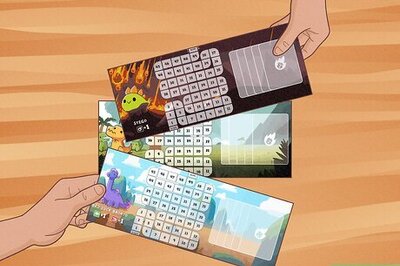
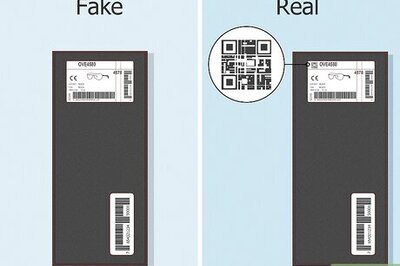





Comments
0 comment